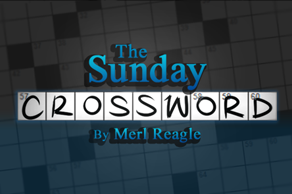A former CIA officer involved in a highly secretive operation to give faulty nuclear plans to Iran was convicted Monday of giving classified information about his work to a New York Times reporter — a significant win for federal prosecutors and a presidential administration that has worked zealously to snuff out accused leakers.
As guilty verdicts were read on each of nine criminal counts, Jeffrey Sterling stared emotionless at the jurors who decided his fate. His wife, seated in the courtroom behind him, sobbed.
The 47-year-old Missouri man is scheduled to be sentenced April 24 and remains free until then.
In a statement, Attorney General Eric H. Holder Jr. said the verdict was a “just and appropriate outcome.”
“The disclosures placed lives at risk,” Holder said. “And they constituted an egregious breach of the public trust by someone who had sworn to uphold it.”
Sterling was accused of a breach that ultimately closed off one of the few avenues the United States had to stem the development of Iran’s nuclear program.
But the prosecution also was notable because it spawned a First Amendment confrontation between a Pulitzer Prize-winning reporter and the Justice Department. And it might be one of the greatest courtroom successes of a presidential administration that has pursued more leak cases than all of its predecessors combined.
Jurors in U.S. District Court in Alexandria deliberated for one whole day and sizable parts of two others before reaching their verdict. Earlier Monday, they told the judge in a note that they could not come to an agreement on several counts.
Other leak cases have resulted in pleas, at least one with terms favorable to the defendant. Former National Security Agency manager and accused leaker Thomas A. Drake pleaded to a reduced charge that called for no prison time. Prosecutors reached an agreement that brought a harsher penalty for former CIA officer John Kiriakou, who was sentenced to 2½ years in prison for disclosing a covert operative’s name to a reporter.
Federal authorities are still mulling charges against several high-profile individuals in other probes, including former CIA director David H. Petraeus, veteran State Department diplomat Robin Raphel and retired Marine Gen. James E. “Hoss” Cartwright.
Dan French, a former U.S. attorney for the Northern District of New York who now does white-collar work at Hiscock & Barclay, said no matter whether prosecutors had won or lost the Sterling case, they are likely to aggressively prosecute leaks they deem serious in the future.
“I just think they’re going to bring these cases continuously to demonstrate that type of conduct by a government employee or a government contractor is going to be prosecuted, because the risk is just too grave,” he said.
Sterling was first accused in 2010 of giving classified information to New York Times reporter and author James Risen for his 2006 book, “State of War.” Prosecutors alleged — and jurors apparently agreed — that Sterling was trying to get revenge on the CIA when he talked to Risen about an operation meant to deter Iran’s nuclear program.
Sterling, who was fired in the early 2000s, had sued the agency over alleged discrimination and also sparred with officials about publishing a memoir describing some of his work.
The case drew special attention when federal prosecutors initially sought to subpoena Risen to testify against his will. Though they won in court, the Justice Department ultimately decided not to put the reporter on the stand at the trial. Risen had vowed to go to jail before he would reveal any sources.
Through his attorney, Risen declined to comment for this article. Holder said in his statement that the verdict proved “it is possible to fully prosecute unauthorized disclosures that inflict harm upon our national security without interfering with journalists’ ability to do their jobs.” Since his department’s legal battles with Risen, Holder has tightened the guidelines governing investigations that involve journalists.
The trial itself was something of a spectacle, with CIA officers testifying behind a retractable gray screen as they described suitcases full of cash, clandestine meetings and fictitious back stories. The case against Sterling was largely circumstantial — there were no recorded phone conversations or captured e-mail exchanges that show that he leaked classified information to Risen — and that required prosecutors’ to delve deeply into Sterling’s work and the details of Risen’s book.
By prosecutors’ account, Sterling was the only potential source who had a relationship with Risen, knew all of the information from the chapter at issue and had a motive to discuss his clandestine work. They argued that the book — which suggested that the secret operation might actually have helped further Iran’s nuclear research — was somewhat inaccurate and that it cast Sterling as a hero and the CIA as hapless.
“Jeffrey Sterling’s spin is what appears in the book,” prosecutor Eric Olshan said.
Defense attorneys posited several people other than Sterling who could have served as Risen’s sources, and they suggested Sterling was unlikely to have given the reporter any information. They argued that some information in the book could not have come from Sterling, because it addressed things that happened after he left the CIA or contained details that he would not have known or remembered.
Sterling defense attorney Barry Pollack said after the hearing that attorneys plan to take the case to a higher court.
“This is a sad day for Mr. Sterling and his wife,” Pollack said. “We will pursue all legal avenues with the trial court and on appeal to challenge Mr. Sterling’s conviction.”
154
COMMENTS
Trending on Social Media
SPONSORED CONTENT
More
Our Online Games
Play right from this page



















